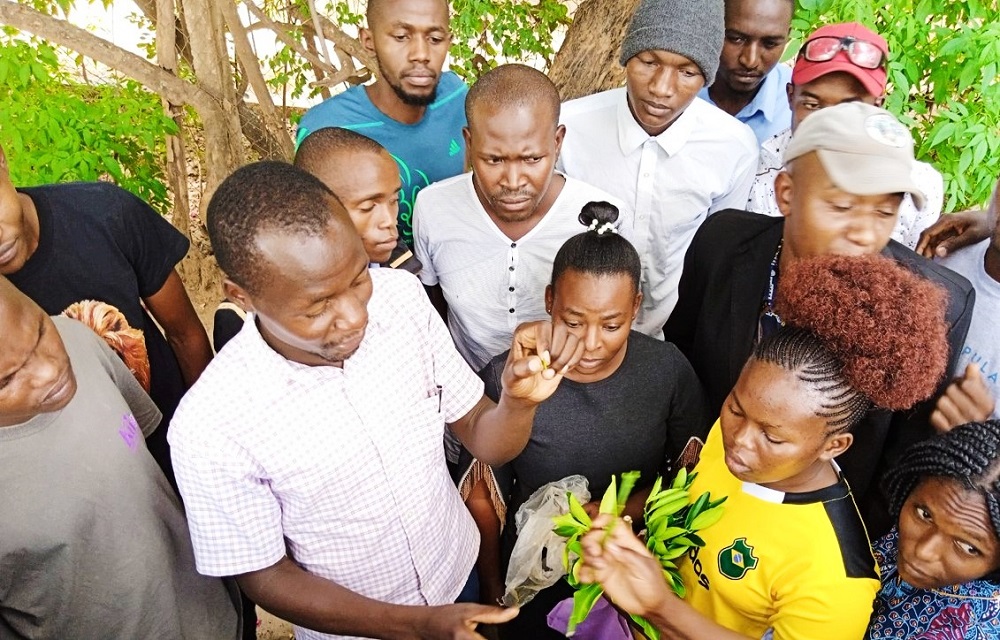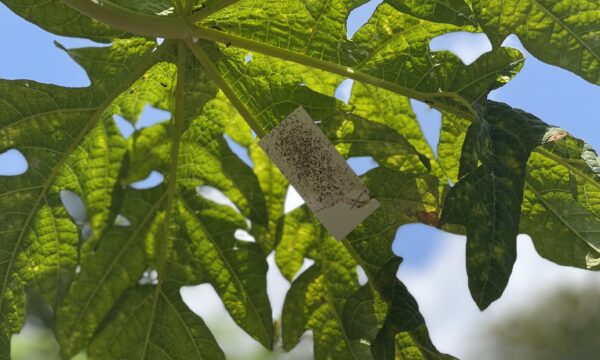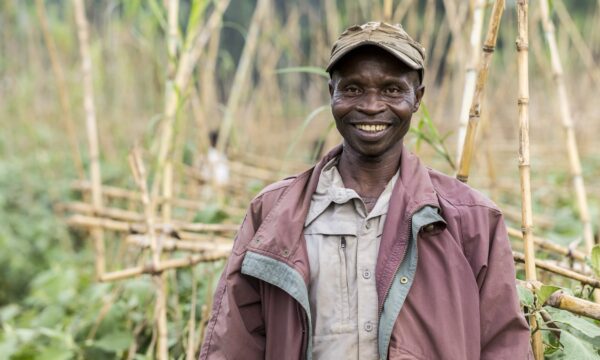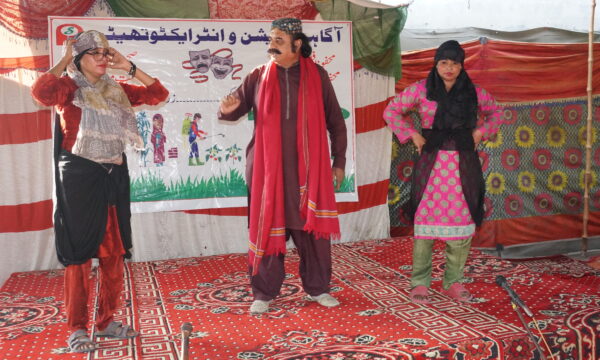
The theme for this year’s United Nations World Youth Skills Day was ‘Skilling teachers, trainers and youth for a transformative future.’
Since CABI highlighted the importance of women and youth in African agriculture at the 6th Africa Agri Expo 2023 held in Nairobi, Kenya, and even before that, the subject of youth skilling to help ensure greater food security has been high on the agenda.
Dr Morris Akiri, CABI’s Senior Regional Director, Africa, told the conference that while women, for instance, play a significant and increasing role in agriculture in Africa – making up 55% of the workforce – they have limited decision making in production and income.
A year prior to that Dr Dennis Rangi, Director General, Development wrote – as part of International Youth Day today (12 August) – that Africa’s youth unemployment challenge needs a revolution in order to sustain global development.
Key to continent’s very survival
He stressed that when one considers that almost 60% of Africa’s population in 2019 was under the age of 25, making Africa the world’s youngest continent, it’s clear that Africa’s youth holds the key to the continent’s very survival and the burden to sustain wider global development.
This, of course, includes the important role that women and youth play in helping to feed Africa’s population which is currently 1.216 billion and is expected to rise to 2.6 billion by 2050.
The challenge is exacerbated by the need to produce more high-quality food sustainably – amid the challenges posed by crop pests and diseases and climate change, where extreme events such as floods can add to the extra pressures put upon yields, livelihoods and food security.
The importance of skilling youth in agriculture then has never been more important.
So much so, in Kenya, for example, CABI, in partnership with the Makueni County Fruit Processors Cooperative (MCFPC), has been busy training the young smallholder farmers of tomorrow.
Reducing inequalities for women and youth
This is in line with Goal 3 of CABI’s Medium-Term Strategy 2023-2025 which highlights the need to reduce inequality through better opportunities for rural women and youth.
The focus has been on issues such as correct pest identification, the safe application of pest management products, orchard management and the use of Integrated Pest Management (IPM) in plant health.
In May, for instance, training was provided to 31 young women and men on Spray Service Provision and mango and citrus orchard management. This included the safe handling and use of pest management products for domestic use and as an agribusiness opportunity.

Meanwhile, other training conducted by the CABI in conjunction with MCFPC – as part of its PlantwisePlus programme – centred on skilling the youth in plant health diagnostics, the art of giving good advice to manage plant health problems and the use of IPM strategies in plant health. Of those who benefitted from the trainings, one third were female.
Steps towards quality agricultural production
Modules taught included how to recognise microbial pathogens (fungus, bacteria, virus, water mould etc) a little about their biology and the symptoms typically produced on plants. Emphasis was placed on diagnosing pests and diseases in fruits – especially mangoes and citrus – as well as other horticultural crops.
Participants were also taken through a presentation on the various common groups of insect pest and how to recognise them by looking at their general appearance and highlighting the symptoms they cause in plants. These insects include, aphids, thrips, white flies, weevils/beetles, caterpillars, scales, mealy bugs, soil borne larvae and leaf miners.
Mrs Mary Muteti, County Director of Agriculture, expressed her excitement in seeing this initiative between MCFPC and CABI come to fruition. She said more youth are being brought into meaningful agribusiness engagement through this model.
Mrs Muteti lauded CABI for sponsoring the youth to acquire the right set of skills for private extension services as this will not only support quality agricultural production but also bridge the extension gap in the county.

Additional information
Main image: The youth learn how to do grafting and budding; a useful skill that would increase their income streams (Credit: CABI).
Relevant stories
‘Importance of women and youth in African agriculture highlighted at 6th Africa Agri Expo 2023.’
‘Africa’s youth unemployment challenge needs a revolution in order to sustain global development.’
Related News & Blogs
‘Sowing the seeds’ for food security in Uganda: CABI supports training for Quality Declared Seed production
CABI has been working with Zirobwe Agali-Awamu Agribusiness Training Association (ZAABTA), the Ministry of Agriculture, Animal Industry and Fisheries (MAAIF), the National Agricultural Research Organisation (NARO), and Integrated Seed Sector Developmen…
21 May 2025




